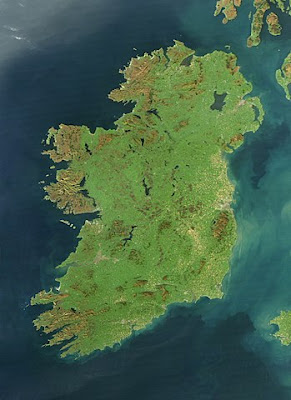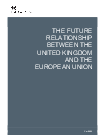 |
Chequers Court
Author Stephen Simpson
Licence Copyright released by the author
Source Wikipedia
|
Jane Lambert
The Statement from HM Government issued from Chequers on 6 July 2018 appears to be a direct response to the
European Council's Conclusions of 29 June 2018. In order to understand both documents it is necessary to have regard for the
Joint statement from the negotiators of the European Union and the United Kingdom Government on progress of negotiations under Article 50 TEU on the United Kingdom's orderly withdrawal from the European Union.
The Joint Statement refers to a
draft treaty for the withdrawal of the UK from the European Union which was first published on 28 Feb 2018. The draft treaty is intended to be an agreement "setting out the arrangements for its withdrawal, taking account of the framework for its future relationship with the Union" within the meaning of
art 50 (2) of the Treaty of European Union. It provides a timetable and road map for the orderly withdrawal of the UK from the EU. The draft agreement provides for the UK to observe the obligations of membership until 31 Dec 2020 after which a new framework agreement is hoped to be in place.
Without a withdrawal agreement, art 50 (3) provides that the treaties and the entire superstructure of legislation that has governed the relationship between the UK and its neighbours and allies since 1973 will simply fall away on 29 March 2019.
There are some who believe that such an outcome would be a good thing because it would enable:
- British businesses and consumers immediately to buy goods from suppliers outside the EU more cheaply than they can now because the UK would no longer have to apply the common external tariff on such goods; and
- British diplomats to negotiate trade deals with countries outside the EU that would be more favourable to British business than the ones to which HM government is already a party.
That may or may not be the case but it is not a view shared by business leaders in the aerospace and automotive sectors that have warned that they will reconsider investing in the UK if the UK leaves the EU without, at the very least, a withdrawal agreement on the lines of the 28 Feb draft.
The problem for both the British government and the remaining EU member states is that any withdrawal agreement will have to be ratified by the British and European parliaments and there is not much time left for them to do it. That is why the Council expressed concern that no substantial progress had yet been
achieved on agreeing a backstop solution for the border between the Irish Republic and the United Kingdom and called upon the UK to make its position clear on any framework agreement for future trade relations between the UK and EU.
Both the British government and the remaining EU member states are committed to an open border between the United Kingdom and the Republic of Ireland. The EU Commission proposes a backstop agreement which would require Northern Ireland to remain in a customs union with the Irish Republic. As that would be politically unacceptable to the UK, the Chequers statement makes two proposals. The first is that:-
"The UK and the EU would maintain a common rulebook for all goods including agri-food, with the UK making an upfront choice to commit by treaty to ongoing harmonisation with EU rules on goods, covering only those necessary to provide for frictionless trade at the border."
Secondly:
"The UK and the EU would work together on the phased introduction of a new Facilitated Customs Arrangement that would remove the need for customs checks and controls between the UK and the EU as if a combined customs territory."
The government listed the benefits of the proposal one of which is that it should
"enable the Government’s commitments to Northern Ireland to be met through the future relationship, avoiding the need for a border between Northern Ireland and Ireland, or within the UK."
There is no guarantee that these proposals will be accepted but they are a start. The alternatives to a withdrawal treaty are no agreement at all and the last paragraph of the statement makes arrangements for that eventuality, an agreed extension of the two year negotiating period in accordance with art 50 (3) or, if that is legally or politically possible, the revocation of the notice of intention to withdraw from the EU.
Anyone wishing to discuss this article or Brexit in general should call me on 020 7404 5252 during office hours or send me a message through my
contact form.






